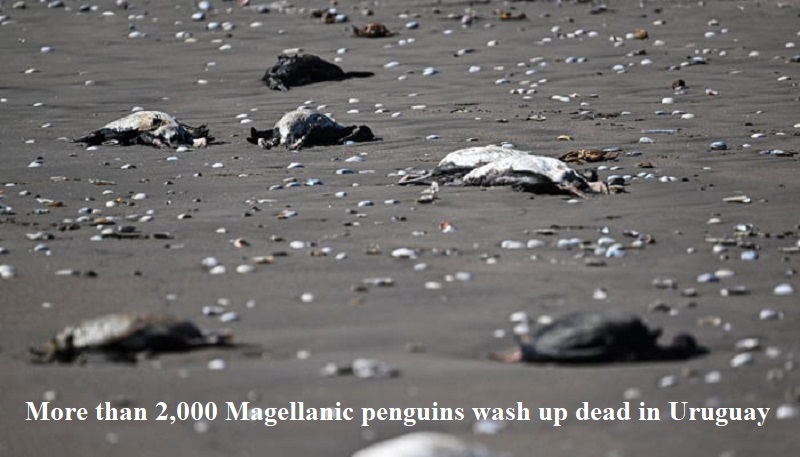
A concerning and perplexing situation has unfolded in Uruguay as thousands of deceased Magellanic penguins have washed up on the shores, leaving authorities deeply alarmed and seeking answers. According to Science Alert, over 2,000 lifeless penguins were found on the beaches, displaying “tremendously thin skins” and empty stomachs, leading to speculation that starvation may be the cause of their demise.
Carmen Leizagoyen from Uruguay’s Environment Ministry expressed her concerns, stating that a significant portion of the penguins, around 90%, were young specimens lacking essential fat reserves and with empty stomachs.
Over the past thirty years, hundreds of dead penguins have been a recurring phenomenon on the eastern beaches of South America annually. While it is not uncommon for some young penguins to perish each year, the number of fatalities has shown a shocking increase in recent times.
In 2010, approximately 500 dead penguins appeared on Brazil’s coastlines, likely succumbing to starvation. Two years later, that number surged to more than 700. In 2019, over 350 penguins were reported dead in Argentina due to extreme weather and storms.
Experts believe this unfortunate trend is a result of several deadly factors converging, including climate change, which may be causing the annual deaths of these penguins.
Various factors like food shortages resulting from the overexploitation of South Atlantic fishing and the impact of climate change on offshore currents are likely contributors to this tragic event, according to the animal welfare organization SOS Rescate de Fauna Marina on Facebook.
This year, suspicions among experts point to a subtropical cyclone off the coast of Uruguay as a potential factor that may have further weakened an already starving population of Magellanic penguins. Additionally, other marine creatures, including sea birds, turtles, and sea lions, have been found dead in the surrounding areas, providing evidence to support this theory.
Since the 1990s, scientists have been aware of the struggles faced by Magellanic penguins in their search for sufficient food. Unfortunately, little action has been taken in the intervening years to ensure the sustainability of their primary food sources, such as anchovies, sardines, and other essential prey in the region.
The decline in food availability is mainly attributed to overfishing, but the influence of changing weather patterns due to climate change is also a significant factor. These shifting patterns can disrupt the distribution of vital ocean prey, exacerbating the plight of the penguins.

Post Your Comments